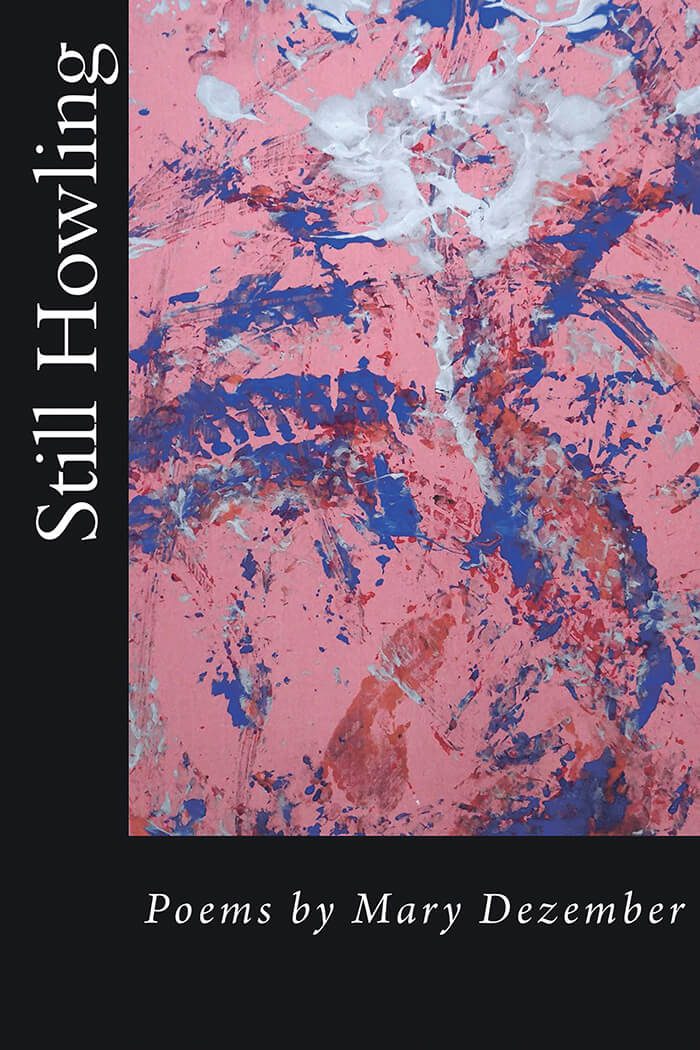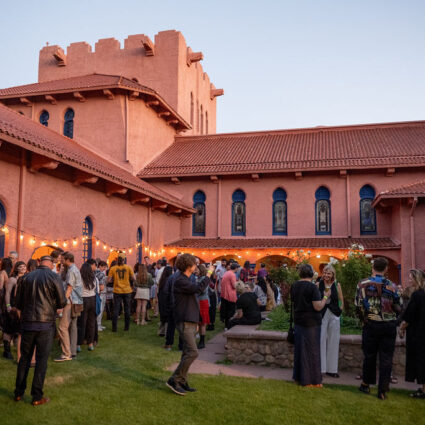
Strangers Collective
54 1/2 East San Francisco Street, Suite 7
When I walked in to Mary Dezember’s reading for Still Howling, upstairs from the plaza in a snug gallery space run by Strangers Collective, the poet came up to me and immediately connected me with something I’d written, something about women, she said. It took me a moment to remember the piece that I’d published in Medium just after the election: “Our Rampant Open Ugly Hatred of Women,” I’d called it. Dezember’s reading from her new collection Still Howling that cold night in early winter reminded me of writing that piece. The certainty of the pain I felt when I wrote it—the need to HOWL—and the discomfort I had with expressing my precise rage as a woman oppressed in a world crumbling under the weight of other entangled oppressions.
Dezember’s reading (particularly of her title poem and its endnote) was fierce and captivating. She told us at the outset that it was James Franco, of all people, and his recitation of Howl in the 2010 film of the same name, that first drew her to the poem as an impetus for her own work. Modeled after and in response to Allen Ginsberg’s Howl, “Still Howling” uses gestures from Ginsberg’s three-part poem to craft an explication of the repression not of gay men in the 1950s, but of women—for the most part straight, upper middle class, white women—by men throughout Dezember’s lifetime. “The best minds of my generation” become “the best souls of my sex”; the psych ward Ginsberg called Rockland becomes Cockland, a catch-all term for a world structured by careless, violent, patriarchal forces.
The difference between the oppression of Rockland, where Ginsberg calls to Carl Solomon as he is treated for depression (and, I suspect, homosexuality) with shock therapy, and Cockland, where, despite a Pitching Machine thudding “ballsballsballs” at women’s bodies, the poet vows “we love men yes we do,” is worth considering. In the Q&A, as in the poem, Dezember insists that she loves men, that this poem is not about hating men (in reply, of course, to a white man’s comment that “not all men” are like the ones in her poem). Does Ginsberg love the people in charge of Rockland in Howl? It seems more likely that Dezember finds herself trapped by one of the most insidious challenges of feminist expression: that under patriarchy, a woman must demonstrate love for her oppressor. Even rightful rage must be tempered, toned down, laughed off.
After Dezember read, and after a former assistant to Ginsberg at Naropa University spent twenty minutes explaining the materials he had collected from the poet and brought forth at this reading as a relevant archive, the audience toed around a discussion of the institutional oppression of women under patriarchy, their various statements passionately delivered, but never quite coalescing into a satisfying discussion of structural violence in Dezember’s Cockland or of intersectional power structures in the world. Perhaps the range of perspectives needed to generate a dialogue were simply not in the room that night. Instead, conversation eddied into treacherous waters where one group’s oppression and pain was argued to be more significant or widespread than others, and at this point the evening adjourned.
I am with Dezember in Cockland, but lately I have lost patience for feminism that is not loudly intersectional. I can relate to the need to simply let one’s rage out, demand that it be heard. But I also wonder if Dezember is with me in Cockland, and if she is with other oppressed people—women, men, trans, two-spirited, and gender fluid—of all sexual identities and ethnicities who suffer under white supremacist heteropatriarchy. If she is with us, and I suspect she is, I hope her future work continues the struggle to articulate and transfigure individual pain into lamentation in which we can all share. And I hope that future Strangers Collective events help bring together diverse groups to facilitate these necessary dialogues.



